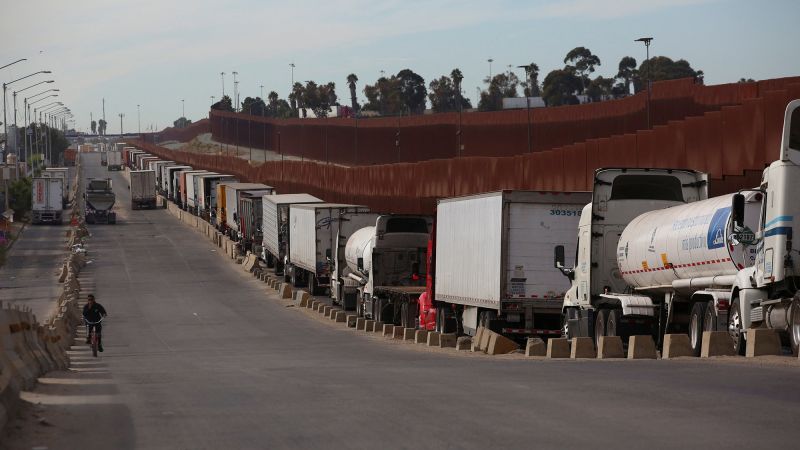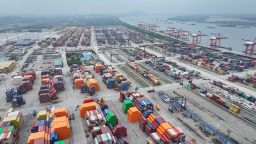—
Since President Donald Trump won the election in November, businesses across the globe have been bracing for higher tariffs — a key Day One promise the president made.
But over a week into his presidency, Trump has yet to enact any new tariffs.
That could change, come 11:59 p.m. ET on Saturday — the deadline Trump set for when he says he will slap 25% tariffs on all Mexican and Canadian goods and potentially a 10% tariff on all Chinese goods.
The tariffs, he said, will be imposed as a way of punishing the three nations, which Trump claims are responsible for helping people enter the country illegally and supplying fentanyl consumed in the US.
Speaking to reporters from the Oval Office on Thursday, Trump said he meant business, especially with his tariff threats on Mexico and Canada. Should he be believed?
Yes and no, said Trump’s former Commerce Secretary Wilbur Ross.
The threat of blanket tariffs is likely being overstated, Ross said in an interview with CNN. “There probably will be exclusions, because there are some goods that just are not made here, will not be made here, and therefore, there’s no particular point putting tariffs on.”
Ross, who was one of a handful of initial cabinet members in Trump’s first administration who kept their position for the entire four-year term, said he advocated for such exclusions when he advised Trump on tariff policies.
Treasury Secretary Scott Bessent supports a gradual approach as well as carving out exclusions for certain goods, he said in his confirmation hearing. But Howard Lutnick, Trump’s nominee to lead the Commerce Department, said he endorsed a blanket tariff approach. There are pros and cons to both, said Ross.
“When we put the steel tariffs in, we got 11,000 requests for exclusions. There aren’t 11,000 legitimate requests,” Ross said, referring to the 25% tariff Trump levied on steel imported from most countries to the US in 2018 unless they satisfied certain qualifying exemption criteria. Many of those requests were denied, he added.
In addition, exclusions for certain countries’ products or certain goods quickly created “a series of whack-a-moles,” he said.
“Every time you put something in, all these clever minds overseas will do their best to figure out: How do I get around it? Do I get around it with transshipment? Do I get around it with some trivial modification?” Ross said. That’s why he sees some value to Trump pursuing, in some instances, blanket tariffs.
Ross, known in the business world to many as the “king of bankruptcy” for his ability to acquire virtually defunct businesses and transform them into profitable enterprises that he’d later sell off, said Trump “means business all the time” when it comes to threats he makes. However, there’s some speculation that Trump may be using tariffs as a negotiation tactic and won’t follow through.
This was the case last weekend with Colombia. Hours after Trump ordered steep tariffs on Colombian goods after the nation initially refused to accept planes with deported migrants, the tariffs were taken off the table. The White House released a statement saying Colombia agreed to “all of President Trump’s terms.”
That’s likely going to be a common experience with other countries Trump vows to impose tariffs on, said Ross. “Sometimes you can get most of what you need without tariffs.”
For instance, Ross said that with the help of US ambassadors to the European Union and Belgium, he was able to convince leaders of European car companies to build more auto production facilities in the US in exchange for avoiding tariffs on their cars.
As to what Trump will sign into law this weekend, “nobody really knows what he will do,” Ross said at an event hosted by the Japan Society last week. Trump understands that “fear of the unknown is the most powerful fear that there is,” and he is fully leveraging that, Ross said.




